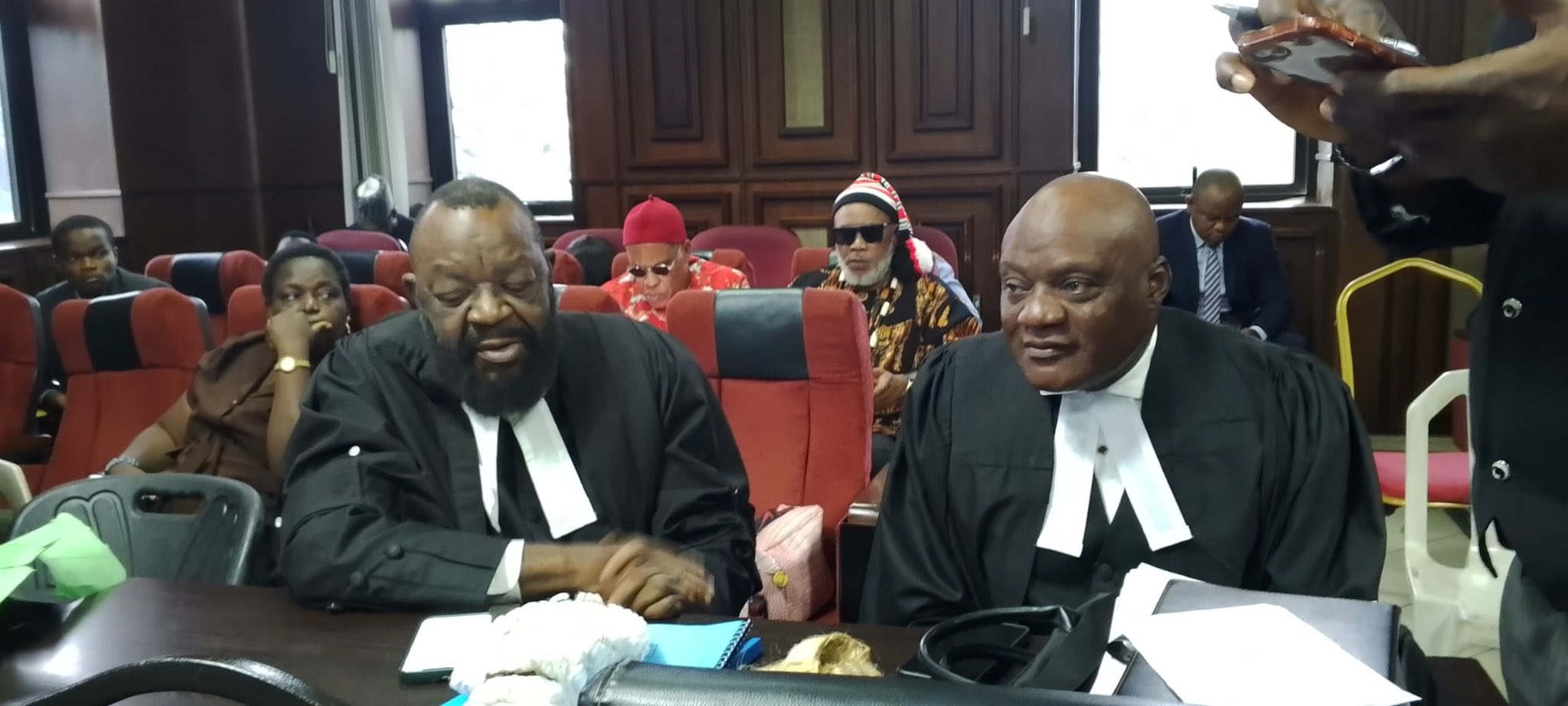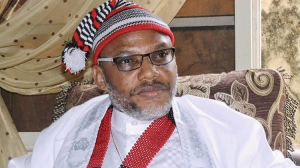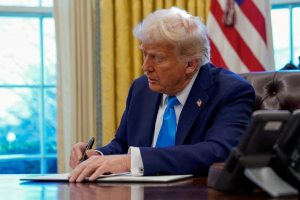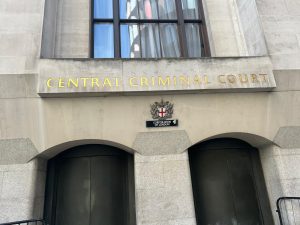Abuja, 18 July 2025 – The ongoing trial of Nnamdi Kanu, leader of the proscribed Indigenous People of Biafra (IPOB), has been adjourned until 10 October 2025. The Federal High Court in Abuja made the decision to allow for a ruling on the no-case submission filed by Kanu’s defence team, citing the impending judicial vacation as the reason for the delay.
The adjournment was announced following proceedings in the case, formally known as Federal Republic of Nigeria versus Mazi Nnamdi Kanu (#FRNversusMNK). Kanu’s special counsel, Aloy Ejimakor, shared the update on social media platform X, stating: “The matter of #FRNversusMNK has been adjourned to 10th October 2025 for ruling on the No-case Submission. The lengthy adjournment was made necessary by the oncoming judicial vacation that will commence in few days.” He added a note of gratitude: “Thank you for your support & prayers.”
The no-case submission is a procedural step where the defence argues that the prosecution has failed to establish a prima facie case against the accused, potentially leading to the charges being dismissed without Kanu having to present a defence. This comes after the prosecution closed its case earlier in the year, following a series of hearings involving witness testimonies.
Nigeria’s judicial vacation, an annual break for courts, typically runs from late July to September, allowing judges and court staff time for rest and administrative duties. The timing of the adjournment aligns with this period, ensuring the ruling can be delivered after the vacation concludes.
Kanu, a British-Nigerian activist advocating for the secession of Biafra from Nigeria, has been in detention since his dramatic arrest in Kenya in June 2021 and subsequent extradition to Nigeria. He faces charges including terrorism, treasonable felony, and incitement, stemming from his leadership of IPOB, which the Nigerian government designated a terrorist organisation in 2017. Kanu had previously jumped bail in 2017 while on trial for similar offences, leading to a years-long international manhunt.
The trial has seen multiple adjournments and procedural hurdles. In February 2025, proceedings were halted indefinitely after Kanu demanded the case be transferred to a court in the South-East region, expressing a lack of confidence in the presiding judge, Justice Binta Nyako. A new judge took over, and the trial recommenced afresh on 21 March 2025. Subsequent hearings in April, May, and June involved prosecution witnesses, with the defence cross-examining them before resting its arguments.
Supporters of Kanu and IPOB have consistently called for his release, viewing the trial as politically motivated and a suppression of self-determination rights. The case has drawn international attention, with human rights groups raising concerns over the conditions of Kanu’s detention and the fairness of the proceedings. However, the Nigerian government maintains that Kanu’s activities pose a threat to national security.
Recent developments, including restrictions on attendance at hearings – such as barring activist Omoyele Sowore from the courtroom – have added to the controversy surrounding the trial. As the judicial vacation approaches, observers anticipate that the October ruling could be a pivotal moment, potentially ending the case or advancing it to a full defence presentation.
Kanu’s legal team and supporters remain hopeful, with Ejimakor’s message reflecting appreciation for ongoing public backing. The adjournment underscores the protracted nature of high-profile cases in Nigeria’s judicial system, where delays due to vacations and other factors are not uncommon.






